Have you ever watch the award-winning TV show titled The Wire? However, have you ever thought about what it’s truly like to live in a poor black environment, to be live in the midst of crime and drugs, and cautious of police officers thirsty for their next target?
This book provides an alarming depiction of the daily life of a lot of young black Americans who live in suburban ghettos. This description of race relations, criminalization, and social alienation due to America’s prison-industrial complex are based on the thorough ethnographic research that author Alice Goffman, daughter Erving Goffman a famous sociologist, gathered for more than the six years she used living in Philadelphia’s popular Sixth Street neighborhood.
The truth she discloses through these stories of daily urban lives is disturbing, and you’ll find it hard to believe what life may seem like for the people who could be your neighbors.
Try Audible and Get Two Free Audiobooks

Chapter 1 – Huge parts of US society live their lives under risk of police arrest.
Another poor black area in America is Sixth Street in Philadelphia. The people who stay there symbolize a way of life known to a lot of Americans: a life focused around avoiding the law, or a fugitive culture.
However, where did this culture come from?
One key origin is the US justice system, which has criminalized huge parts of society.
US prison statistics reveal that since the 1970s when the “tough-on-crime” and “war-on-drugs” policies were enacted, prison incarceration rates have increased rapidly. Presently, nearly 3% of US adults either sit inside a prison or outside under some kind of police monitor (like under house arrest). In order to put things into perspective, just labor camps under Stalin in the Soviet Union match the levels of confinement in America nowadays.
More statistical analysis shows that black Americans are a society that is specifically aimed at. Although this group symbolizes just 13% of the United States population, black Americans constitute 37% of the prison population. This current rise was mainly caused by welfare reduction that made a lot of black people in the communities go into the drug trade to endure –only when the government crackdown on the drug economy started.
We have the habit to reason that people decide to be criminals. However, the majority of the people in poor environments turn into criminals because there is little else to do to live. Staying in neighborhoods that are afflicted by high unemployment, a person might sell crack on the side to survive. However, while selling drugs could assist fetch needed money for your family, it could also be the first phase in a ceaseless cycle of court hearings, warrants, and jail time.
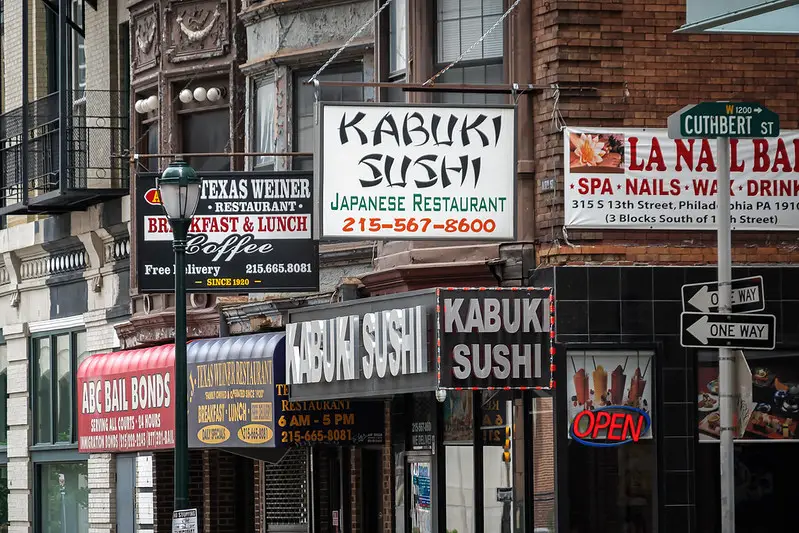
The majority of the young adult who stay in this Philadelphia area– the Sixth Street boys are involved in this cycle and due to that, they are usually on the run.
In this cycle, trivial incidences usually increase into full-scale criminal activity, dragging everybody into its pull. For example, an adult is arrested for having marijuana; due to that, his driver’s license is taken from him. Out on probation, he drives his brother to school; however, he is then seen driving without a license; he’s arrested and imprisoned. Now the brother steals from a store to “earn” the bail money…and the cycle goes on.
Chapter 2 – In a fugitive culture, it’s regularly the best to flee from the police rather than to cooperate.
You might reason that the best approach to evade issues with the law is to obey the law. However, unluckily, for a lot of for many Sixth Street boys, this basically doesn’t work.
Why?
Because in an area such as Sixth Street, you are usually a target regardless of what you have – or haven’t – done.
If you stay in a fugitive culture, there’s usually a cause for the police to arrest you. Maybe there is a half-smoked joint in your pocket, or the rules of your probation prohibit you to be on a particular street. Therefore, when the police walk up to you, even if you know that you’ve done anything wrong, the risk is high that something will arise
A Sixth Street boy called Chuck summarized it for his younger brother: “Anybody they’re searching for, even if it’s not you, nine out of ten times they’ll most likely book you.”
To evade being arrested, Sixth Street boys have created a remarkable sense of police alertness.

There are two main aspects to flee from the police successfully: Recognize an officer very fast, and know how to run. If you’re stuck in the fugitive culture, you’ll have understood what a police officer resembles when working undercover, how they walk and where they are probably going to show up. Also, as soon as you have seen one, the strategy is usually the same: run and hide. Small boys learn the significance of running from a tender age, and from their elder siblings, they learn escape ploys and the place of secret hideouts.
The dread of the police is really strong that even the author and her white friends usually made small boys run down Sixth Street, informing their friends to whom they believed were undercover police.
If you stay in Sixth Street, you have to be alert all the time and keep a healthy distance from any kind of police authority. One minute you’re minding your own business, and the following minute you’re playing another round of hide-and-don’t-get-caught.
Chapter 3 – Police can usually get fugitives by aiming at their families’ social insecurities.
Attempt picturing for a minute that you can’t trust anybody: even your family or friends, people who should ideally be there to support you all the time.
For a lot of boys in the Sixth Street, this is their reality. They are never certain if their friends or their family won’t turn against them. The reason is that, in a fugitive culture, the police are usually able to make use of the information they have on your friends or family to enable them to talk about you.
How?
The police use different kinds of schemes to get information from your closest acquaintances.
Frequently, a fugitive’s father, for instance, might himself get an open warrant, or a step-mom might have her own past with the law. Therefore, when threatened with arrest for housing a fugitive or meddling with an investigation, a family member understands that things could become worse for them immediately.
Furthermore, mothers and partners may concede to questioning if a police officer “suggests” he might call in the Child Protective Services which is the state agency for child welfare, or “allow” a family’s social housing welfares be removed. Increasing the burden of these threats, the police truly usually possess the legal actions to follow through, if they see drugs in the house, for instance.
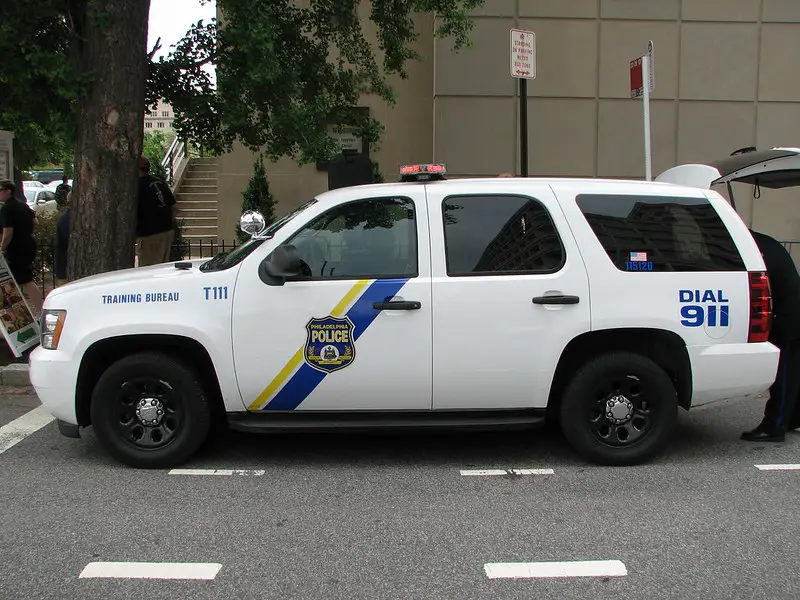
Since the police are certain to target their closest family or friends – people who are aware of their entire secrets – Sixth Street boys have formed new means of avoiding arrest.
You might reason your best friend would be the appropriate person to hide you. However, the boys of Sixth Street understand better and never hide where they might be exposed, such as an uncle’s or the mother of their child’s place. Rather, they run to places even their friends wouldn’t know, like a strange old neighbor or the friend of a friend’s friend.
Chapter 4 – Evading the police entails living outside mainstream society and its aids.
On Sixth Street, you need to ensure that you’re not in the wrong spot at the wrong time – which can be anywhere. And since the police are usually searching for who to arrest next, people living in Sixth Street have to ensure that the police can never guess where they happen to be.
This entails that you can never have a consistent routine, because immediately the police need something, having a routine entails that the police’s wide surveillance system will immediately track you down.
So a person staying in Sixth Street needs to always evade doing things that are predictable. And as a result, living in a fugitive culture involves loosing many of life’s great things.
For instance, every social gathering is forbidden. Chuck who is a friend of the author, couldn’t even go the birth of his first child because of an unresolved warrant for some trivial offense. He was aware that the police usually check waiting rooms at hospitals and check the names of every visitor through their files in search of wanted people.
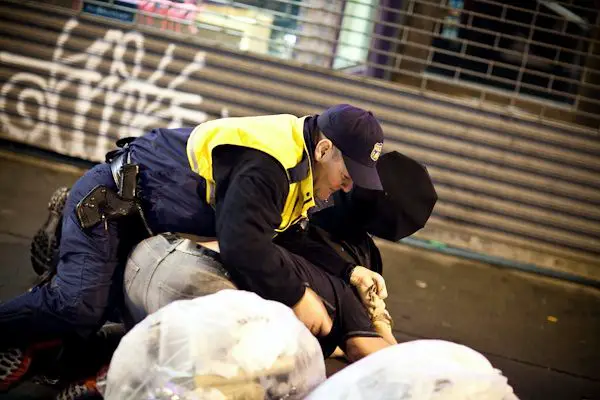
Aside from being deprived of any kind of routine, Sixth Street boys can’t even call the police when they truly need their help
Staying in Sixth Street entails that if your house is mugged, the justice system will harm more than assist you. If you speak to the police, they’ll then discover where you stay, and therefore easily see you when next you get in trouble.
A Sixth Street boy called Reggie was mugged on a street where he shouldn’t have been, as a result of the rules of his probation. So, he couldn’t inform the cops or even get medical treatment. His bruised nose is still crooked, as he was scared of police questioning at the hospital.
Since he is part of the fugitive culture, Reggie couldn’t take the benefit of some of the most fundamental societal institutions: the health care and justice systems.
Chapter 5 – If you can’t leave the fugitive culture, you can as well maximize it.
You probably know of the saying that says, if life gives you lemons, make lemonade out of it. Lemons in a fugitive culture are really bitter that people living in Sixth Street have to make lots of lemonade.
For instance, when staying in Sixth Street is not safe anymore, inhabitants will attempt to get themselves imprisoned instead.
Why?
Because occasionally, a traditional conflict dangerously occurs in the neighborhood. For instance, on one occasion, a Sixth Street boy mistakenly shot a man from Fourth Street. The conflict intensified, and the next week’s a lot of others were shot and injured. At a point, Sixth Street was a bit really “hot.”
In order to evade conflict, a lot of Sixth Street boys opt for prison for safety. The author saw how one after the other, Sixth Street boys would turn themselves in on an unresolved warrant that they would have otherwise disregarded. One of the author’s Sixth Street friends even instigated a police pursuit through the city to get arrested and then imprisoned.
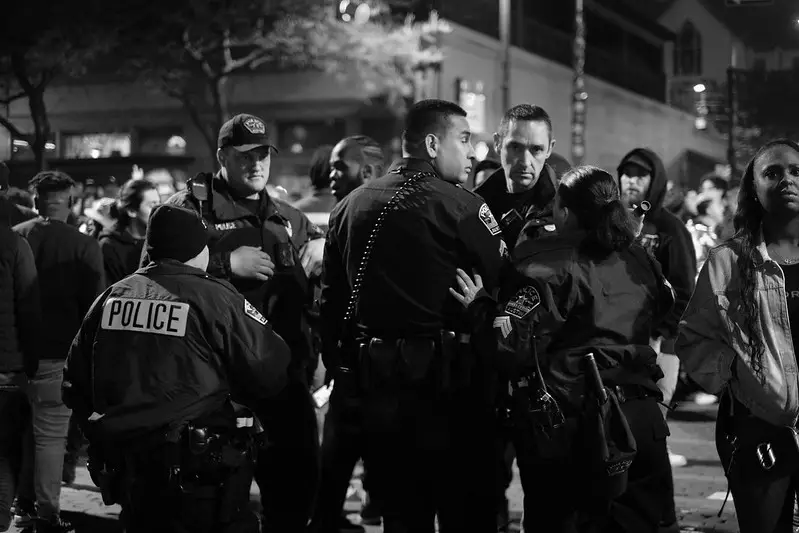
Another method some Sixth Street boys maximize their situations is by making use of the bail office as a bank.
For instance, assuming you had to pay $2,000 in bail and you’re on probation for one year. Your money is definitely much safer with the authorities than being at home for your crack-addicted sister to find. Even though you’ll lose 20 percent in charges, banking with the bail officer is still much better than having your entire money stolen.
Aside from that, you might even make use of the bail as a kind of collateral for informal lending. After the author’s friend Mike was denied a bank loan as a result of his criminal record, Mike lent $1,000 from a local marijuana dealer and assured him that he will pay it back with interest from his bail money.
Chapter 6 – In social relationships, the fugitive status is used as a device.
Fugitive culture affects nearly all aspects of a person’s personal life. Also, the person you pick as your romantic partner is affected by it as well
Think of the story of a Sixth Street girl named Lisa. When she fell pregnant, her partner Reggie was immediately denied the entire responsibility. However, immediately she had the opportunity, Lisa got revenge in a usual Sixth Street technique: by threatening to call the cops.
Women threaten to call the police to control their partners in Sixth Street.
Reggie did the mistake of being part of a shooting in front of Lisa’s house. Instantly, she reported him for attempted murder; however, he chose to withdraw the charges after he made an apology – and accepted responsibility for the baby.
In some situations, women even fabricate accusations to force guys to leave new girlfriends or to stop chilling with other boys. They can do this since they – and their boyfriends –understand that the police will usually believe their false stories over the true stories of their partners.
Also, fugitive status transforms how people display their love or dislike.
Why?
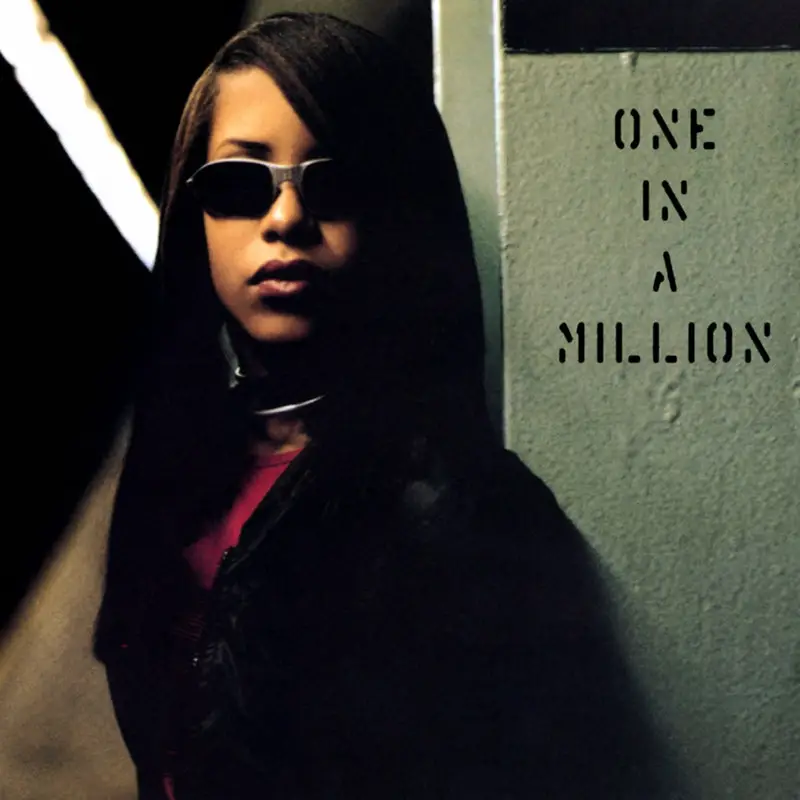
The reason is that in a fugitive culture, relationships are in big part shaped by mutual risk-taking. Hiding a fugitive friend can bring some problem for yourself: say the police search your house and not only see the friend; however, also found your unlicensed gun or a pile of marijuana.
This signifies that that one of the strongest means of displaying to someone that you like them is to take that legal risk and hide them in your home. Likewise, the people of Sixth Street don’t just take on risk for anybody, and might even intentionally reject shelter to some as a sign of dislike.
Chapter 7 – The penal system offers significance and structure to criminalized youth.
Think of this scenario: Your mother is seated in the front row wearing her best dress, your girlfriend looks gorgeous sitting beside to her and you are surrounded by well-respected representatives of society. Seem like a graduation ceremony? If you are from Sixth Street, this is probably your first huge court trial.
This is how the fugitive culture substitutes the usual coming-of-age structure in society.
Rather than rejoicing on a first work or the first semester at college, the boys from Sixth Street have a tendency to experience their best significant “firsts” as part of the criminal justice system: Their first drug work, their first time imprisoned and their first juvenile case.
Also, just like parents that nag teachers for better grades or plan after-school events, the parents of Sixth Street parents will use the majority of their time writing petitions, appealing to judges, or driving to prisons to take their children. The structure is alike, just the content is different.
This connection with the penal system directly forms the boys’ personalities.
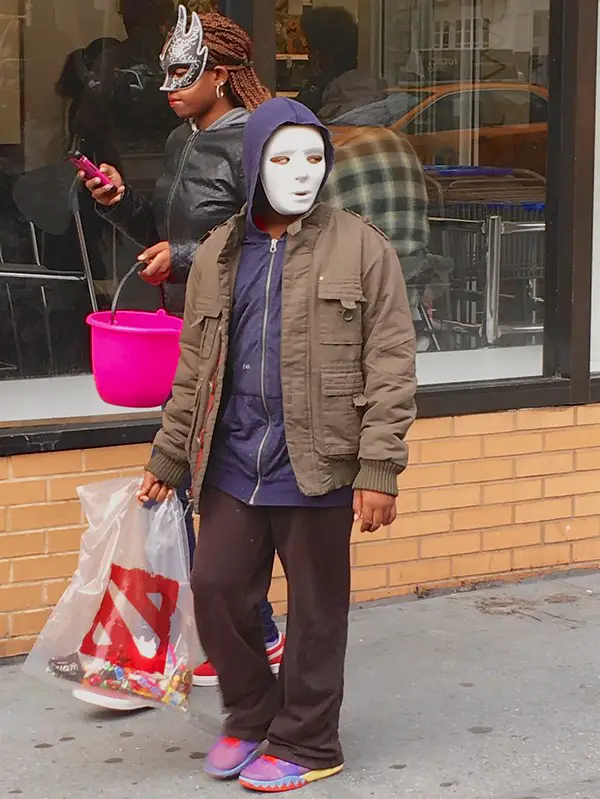
However, boys in other regions of town form characters due to their interests or class performance, the boys from Sixth Street have different status indicators: being cool is a situation of being reasonable amidst violence and outsmarting the law.
Still, regardless of how well a person copes, every area of the penal system is still belittling and demeaning. Living with an emptiness of positive reinforcement actually has a negative psychological impact on a lot of adolescents.
However, growing up in a fugitive culture doesn’t entail that you are deprived of every structure and live in a social disorder. The justice system only substitutes what the majority of the boys remember as their life-changing moments.
Chapter 8 – Fugitive culture is an exceptionally entrepreneurial community.
Do you believe that it’s likely to trade urine for money? Or that you could earn money from trafficking drugs into prison? These are the services and goods within the fugitive economy.
People of Sixth Street usually have to fall back on that kind of “entrepreneurial” activities as they are removed from the usual economy.
Why?
Since it’s nearly impossible to get an appropriate job if your employer discovers that you’ve been arrested for having drug or assault. Simultaneously, money is usually short, social security welfares are scarce and an important share of earnings in the fugitive culture is used on fines and bailouts.
Due to that, people have to become creative and a lot turns to the mass of underground economy jobs.
Some participate in direct illegal activities, such as trafficking drugs into prisons. A woman known as Shonda trafficked marijuana into a Philadelphia correctional facility for $50 by hiding it in her underwear. Initially beginning with her boyfriend, she shortly got a wider base of customers and at a time visited the prison three times a day.
Other people of Sixth Street survive by stretching the law; however, without committing a real crime.
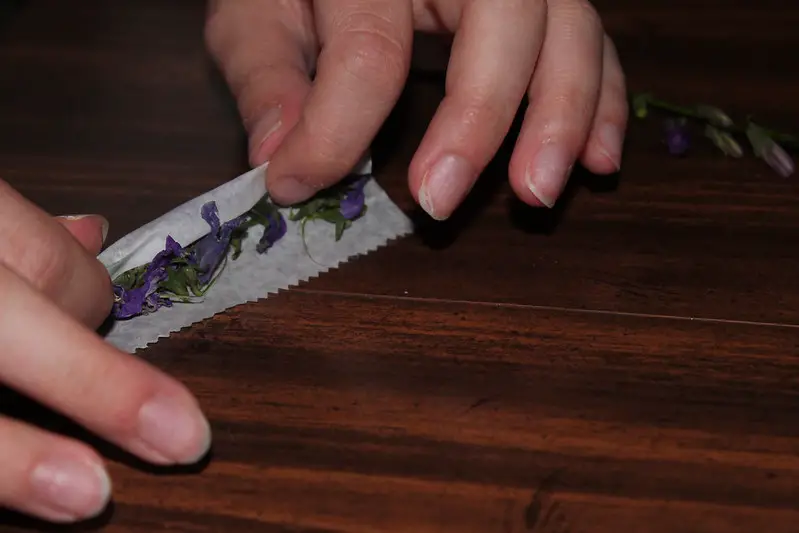
Rakim manages a urine business. Rakin sells his own drug-free urine to men who are on probation who have to regularly provide their urine samples to their parole officers. So after his first success, Rakim even grew his business and contracted out urine production to two women!
In another case, Jevon earns money from his skill to mimic voices well. He charges $5 per hour, and he would house-sit in the evenings and take the phone for men on a curfew as part of their probation rules.
People will usually earn money if they get the chance. It is the same in fugitive culture.
Chapter 9 – Fugitive culture forms huge divides.
While Reggie, Mike, and their other friends – usual Sixth Street boys –use the majority of their days striving in the streets and chilling, there is also a different community living on Sixth Street known as the clean people.
If you stay in the fugitive culture and you have three warrants on your record, Sixth Street sees you as dirty; anybody who has succeeded to avoid the penal system is seen as clean.
However, even though people live side by side, there is a huge divide between the clean and dirty people. In order not to get caught up in the fugitive culture, clean people do everything possible to avoid dirty people. They attempt to set themselves physically aside by getting out of Sixth Street for work during the day and using their spare time indoors.
If they don’t do that, clean people are scared that they will end up like Josh. When a boy from Sixth Street called Josh got a $60,000-per-year job at a pharmaceutical company, he failed to cut off connection with his dirty friends. Not long after, colleagues overheard telephone discussions about flying bullets and someone discovered that Josh had a record for cocaine possession. Immediately after that, Josh lost his work and he went back to Sixth Street.
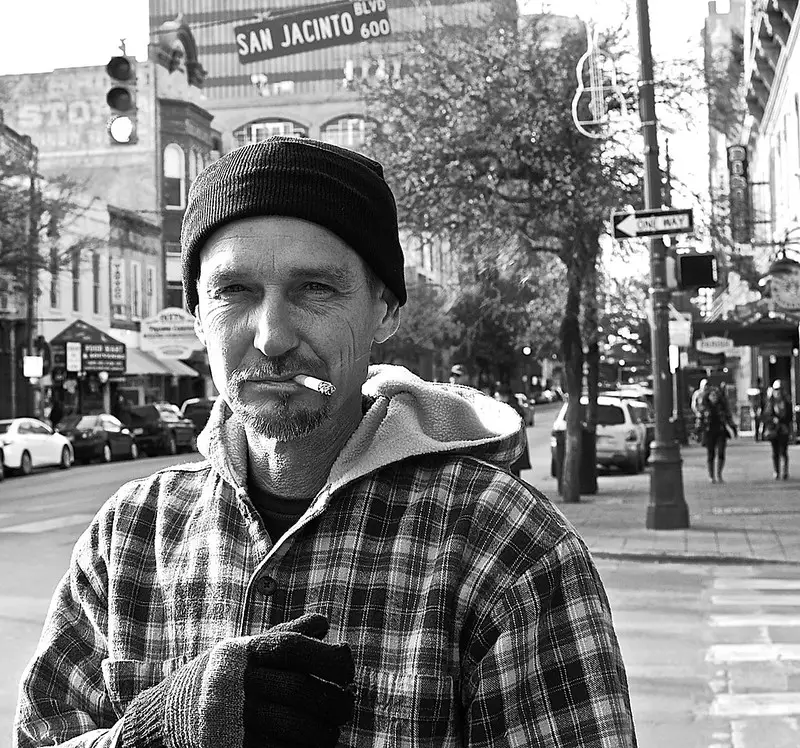
Aside from the clean/dirty divide, there is also a huge male/female divide.
When you check the person that is dirty and the person that is not, it’s usually men who are completely involved in the penal system. Whereas, women, usually help and support their partners in getting through the justice system. Due to that, women bear the majority of the responsibility at home, raising their children by themselves, and since they use less time in jail, they are usually better educated.
Sixth Street is divided. The fugitive culture has not just succeeded to criminalize huge areas of society; however, it has also caused disagreement between families, spouses and old friends.
Chapter 10 – In attempting to cope with an increase in crime, the US government has created ineffective answers.
Usual drive-by shootings, crack sold publicly on the streets with children seeing – this has been the daily life in regions like Sixth Street for several years. However, in the 1980s, during an upsurge of crack-related crime, troubled mothers and citizens agreed that enough was enough and drove politicians to respond.
Therefore, why do these issues still occur?
The reason is that while politicians reacted, they used the incorrect devices.
It had gotten to a point where politicians couldn’t disregard drugs and drug violence anymore. Still, they handled the difficult social issues of poor education, racial segregation, drug addiction and abuse like a thing that could be fixed by a tough-on-crime policy.
Inevitably, the cops and the penal system are very much the only public institutions “dealing” with neighborhoods such as Sixth Street.
But, a lot of police officers understand perfectly well that their work isn’t making the matter better. They understand that the only weapons they possess are handcuffs and jail time, and that’s basically not enough. However, the police officers need to work in these areas, and a lot hesitantly accept the reality: rather than defending communities from a few offenders, they put an entire neighborhood under suspicion and surveillance, which just intensifies social pressures.
This tough-on-crime tactic has brought about a new type of institutionalized racism.
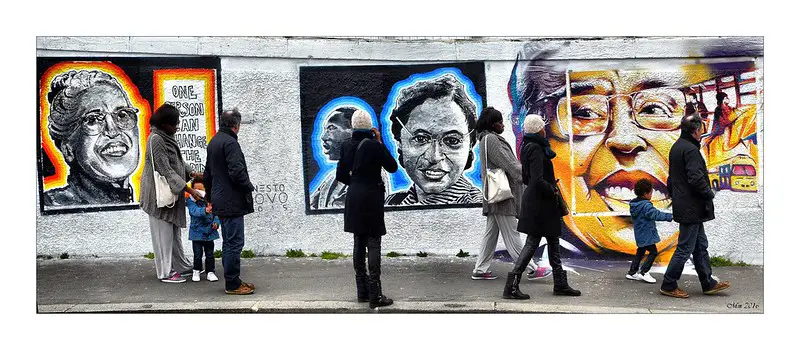
As a matter of fact, the drug and petty crime laws passed since the 1970s and 1980s in the United States have had a related effect as the alleged Jim Crow laws, the legal basis of US racial segregation that was set in place until 1965 and that deprived millions of black Americans and disfranchised them of their civil rights.
Similar to during the Jim Crow time, a lot of blacks cannot move around freely as they are usually on probation; they do not have access to vote since they are in prison, and they cannot contest for office and are excluded from a lot of regular jobs as a result of their penal record.
Politicians like simple solutions to complex issues and tough-on-crime policies looked like a good idea at that moment. But, the government’s answer to drug crime has led to more harm to neighborhoods such as Sixth Street than in really reducing criminal activity.
On the Run: Fugitive Life in an American City by Alice Goffman Book Review
With futile policies, the US penal system has basically criminalized huge parts of poor, black suburban environments. Due to that, the lives and social relationships of a lot of young black Americans have developed to focus around a routine of being on the run from the police all the time.
Try Audible and Get Two Free Audiobooks
Download Pdf
https://goodbooksummary.s3.us-east-2.amazonaws.com/On+the+Run+by+Alice+Goffman+Book+Summary.pdf
Download Epub
https://goodbooksummary.s3.us-east-2.amazonaws.com/On+the+Run+by+Alice+Goffman+Book+Summary.epub
